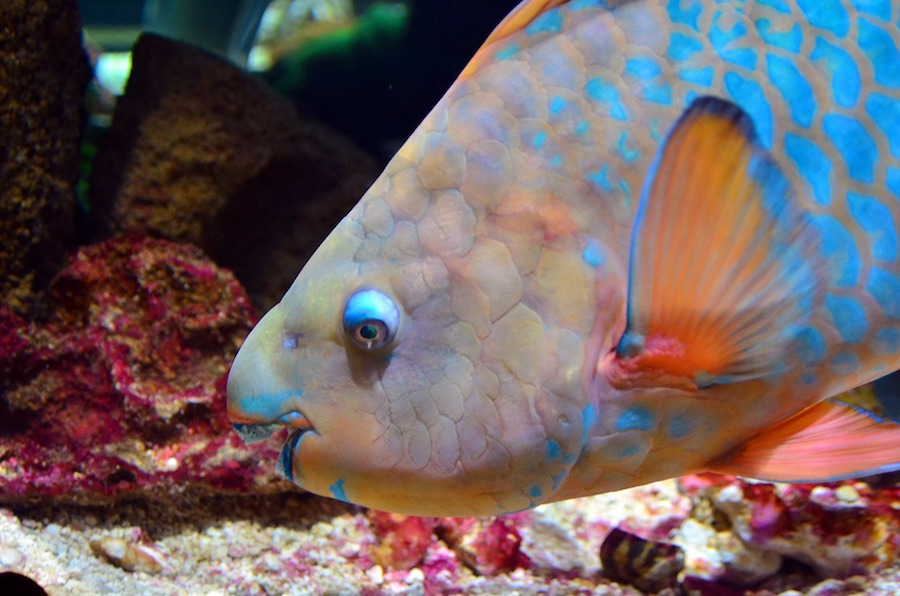
Where and when animals eat food is dependent on those around them
Animals are socially influenced by each other, which affects everything from how much individuals eat to the likelihood that certain species will go extinct. For example, a study shows that algae-eating fish in coral reefs will eat food in more dangerous areas if there are other algae-feeding fish already there.
“Social information, while it’s a simple process, as simple as fish copying each other, or whatever it is, a bird copying another bird, a bird copying a squirrel […] If an animal that shares your needs, your resources, or shares your predators, reacts in a way that seems good or bad, then animals often then follow suit,” said Michael Gil, a coauthor of the study.
A more recent study shows that all types of animals rely on social cues to determine their behaviors, such as picking a sleeping site or avoiding predators. Supporting this theory is the study done on coral reef fish, which found that fish reinforce each other’s feeding behaviors.
In a calm lagoon off French Polynesia, a fixed station with video cameras monitored flat, open areas with lots of algae. Even though there was a lot of food for algae eaters like parrotfish and surgeonfish, the areas not did provide cover from potential predators, like sharks. In these more dangerous areas, the fish still gathered to feed if other algae-eating fish were present.
“Animal use of social information is something that we’ve known about for a very long time, and now more and more ecosystems are showing these same patterns,” Gil said. “Animals copy one another within and across species.”
Andrew Hein co-authored both studies with Gil, and he explained different methods by which the footage of fish was examined. At first, students went through the hours of film looking for fish and how they reacted. Later, a computer program was designed to recognize fish, which reduced the time needed to look at the videos.
According to Hein and Gil, these studies have far-ranging applications. Understanding that different mechanisms drive ecosystems is important for conservationists to know so that they can push for policies to protect the environment.
“When we remove fish from these ecosystems, we’re not just removing these valuable workers […] when you remove the fish, you’re not just removing the important individual and it’s feeding ability, you’re also removing its social influence on the rest of the fish in the ecosystem,” Gil said.
By removing a few fish, the rest of the fish will not have the reinforcing behavior to eat, and may become weaker. Not only would this decrease the fish population, but other species might suffer. The coral reefs that parrotfish and surgeonfish live in can be killed off from excessive algae growth.
“The reason that one would care about this is that the fish I’m talking [parrot fish and surgeonfish] about are responsible for consuming algae,” said Gil. “And these particular algal species that these fish eat, if left unchecked, they can kill coral. And we know that, in some cases, degrade entire coral reef ecosystems, making them far less valuable for humans.”
The study about fish behavior is important to coral reef conservation. However, if the same social behaviors occur in other contexts and species, the impacts would be even greater. Gil thinks that their theory could predict how species will be affected by climate change and which species will be able to avoid extinction. However, it is possible that fish copying each other’s behaviors can have negative effects.
“There might be a social component to making bad decisions as well, like eating plastic,” said Lea Pollack, a Ph.D. student. “If one fish eats plastic, maybe another one will try it too. Sort of like the proverbial, if your friend jumped off a bridge, would you jump too? We tend to think of this social information use as beneficial to these animals, since it tells them more about their environment and more information often means a more informed decision […] this social information might actually be harmful in certain situations.”
Written by: Rachel Paul — science@theaggie.org



